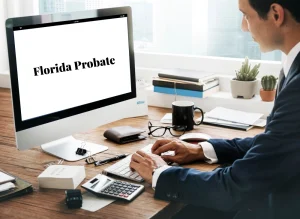
Many Florida families use joint bank accounts to simplify finances and avoid probate. But when one account holder passes away, what actually happens to those funds? The answer depends on how the account was set up and whether it includes rights of survivorship.
How Florida Law Treats Joint Bank Accounts
Under Florida law, not every joint account automatically transfers to the surviving owner. It depends on the account’s legal designation. Most joint accounts are labeled “joint tenants with right of survivorship” (JTWROS) — meaning the surviving co-owner automatically becomes the sole owner after one party’s death.
However, if the account does not include survivorship language, the deceased person’s share becomes part of their probate estate. That means the funds may need to go through Florida probate before being distributed to heirs or beneficiaries.
When Joint Accounts Still Go Through Probate
Even with survivorship rights, disputes sometimes arise. A joint account may become part of the probate estate if:
- The account was created for convenience, not as a true gift to the co-owner.
- There’s no clear survivorship clause in the account agreement.
- The funds came entirely from the deceased person, and other heirs claim ownership.
- The court determines that the joint owner was
In such cases, the probate court will decide whether the funds belong to the estate or the surviving account holder.
Protecting Your Joint Account from Probate Issues
It is important to establish ownership and intent during the lifetime of both account holders so that everyone can understand what is involved and there is no need to go to court and incur unnecessary expenses. Here are key steps:
- Check your bank documents.
Ensure the account is clearly labeled “joint with right of survivorship.” - Keep clear records.
Document who contributed to the account and for what purpose. - Consider a payable-on-death (POD) designation.
This allows funds to transfer directly to a named beneficiary outside of probate. - Review your estate plan regularly.
Make sure joint accounts align with your will or trust, especially if you have multiple heirs.
Final Thoughts
Although joint bank accounts in Florida may easily serve as a means of handling money and saving a probate court trial, it may also cause problems in cases of uncertainty on ownership. The point is that you have to plan it all out – make sure you designate rights of survivorship, and set up your account in line with your general estate plan.
If you’re managing a loved one’s estate or setting up your own accounts, consider consulting a Florida probate attorney to ensure everything is properly documented and legally protected.



